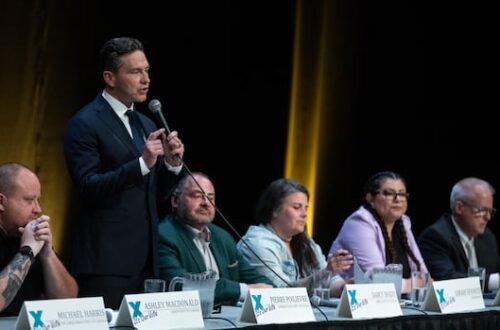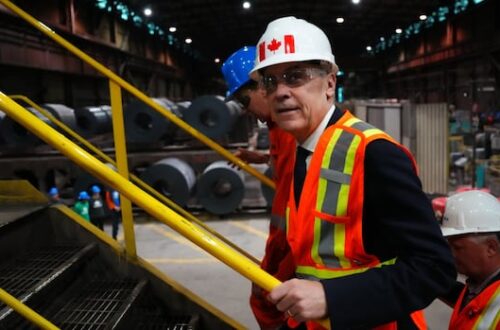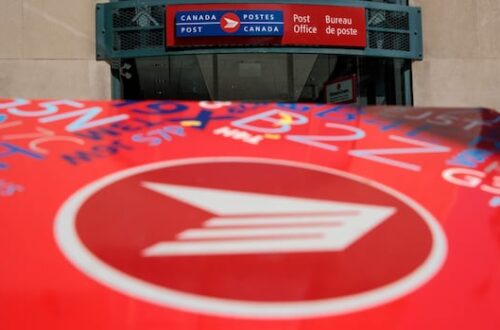Transport Minister Chrystia Freeland told MPs Friday she was “dismayed” by B.C. Ferries’ decision to purchase four new electric-diesel ships from a Chinese shipbuilder, using a $1 billion federal loan, but did not call for the loan’s cancellation.
The House of Commons transport committee launched a study of the Canada Infrastructure Bank loan today.
B.C. Ferries announced in June that it had hired China Merchants Industry Weihai Shipyards to build the new ships after a five-year procurement process that did not include a Canadian bid.
The Canada Infrastructure Bank contributed a $1 billion loan to the deal and said in June that the new ferries “wouldn’t likely be purchased” without this financing.
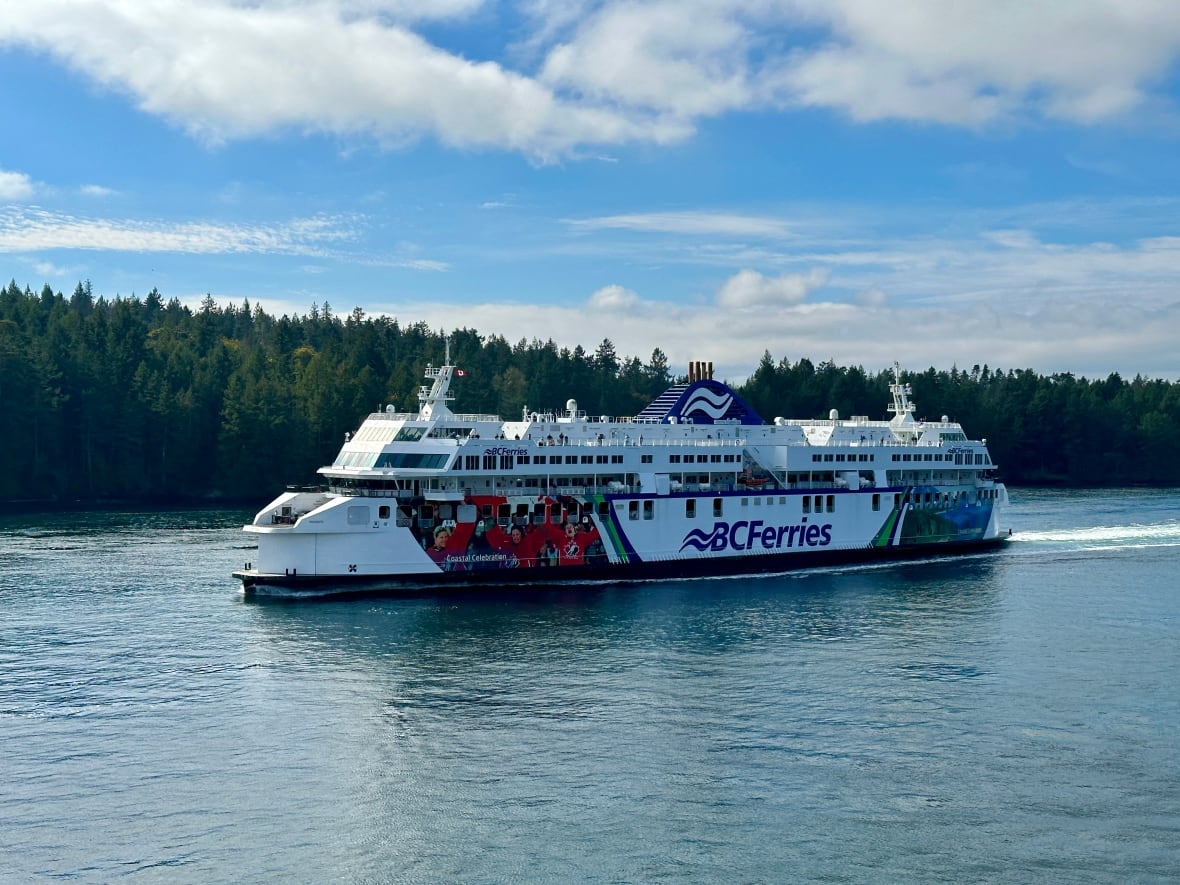
In her opening remarks before the committee on Friday, Freeland said she was troubled by the planned purchase, and she believes in supporting Canadian jobs.
She said she has sent 71 letters directing all organizations under the Transport Canada umbrella to prioritize Canadian content in their major procurements where feasible — particularly Canadian steel, aluminum, and lumber.
When Canadian options aren’t available, she said, the preferred option is to buy from countries with trade deals that include reciprocal procurement agreements.
Freeland said Transport Canada will soon be convening a meeting with provinces and territories, ferry owners and operators, shipyards, labour representatives and the steel industry. She said she’s also assembling a second meeting with major rail operators.
Freeland did not directly respond to questions from MPs about whether the government would push for the cancellation of the loan. She said she agrees that this is a moment of crisis for the steel and aluminum sectors, and they need the government’s support.
B.C. Ferries’ announcement that its four new ships will be built in China has caused a political storm. Some federal and provincial politicians are calling for the deal to be scrapped entirely. But as Katie DeRosa reports, local mayors say the criticism ignores the pressing needs of people in ferry-dependent communities.
The Canada Infrastructure Bank is accountable to Parliament through Housing and Infrastructure Minister Gregor Robertson, who also testified at the meeting.
In his opening remarks, Robertson told committee members that the shipbuilder was chosen by B.C. Ferries, not the federal government or the Canada Infrastructure Bank. He said B.C. Ferries conducted its own global procurement process that didn’t yield bids from Canadian shipyards.
Robertson said he’s disappointed by B.C. Ferries’ decision and wants to see more Canadian-built vessels and more opportunities for the domestic industry to participate in major infrastructure projects.
He also called the purchase a “critical” investment and said that “these ferries need to get built.” Robertson assured MPs that there would be Canadian jobs associated with the maintenance of the ferries and terminals.
Robertson said the government is looking closely at how it can better align its industrial policy, procurement tools and investment incentives to “support and scale up Canadian capacity in important sectors like shipbuilding.”
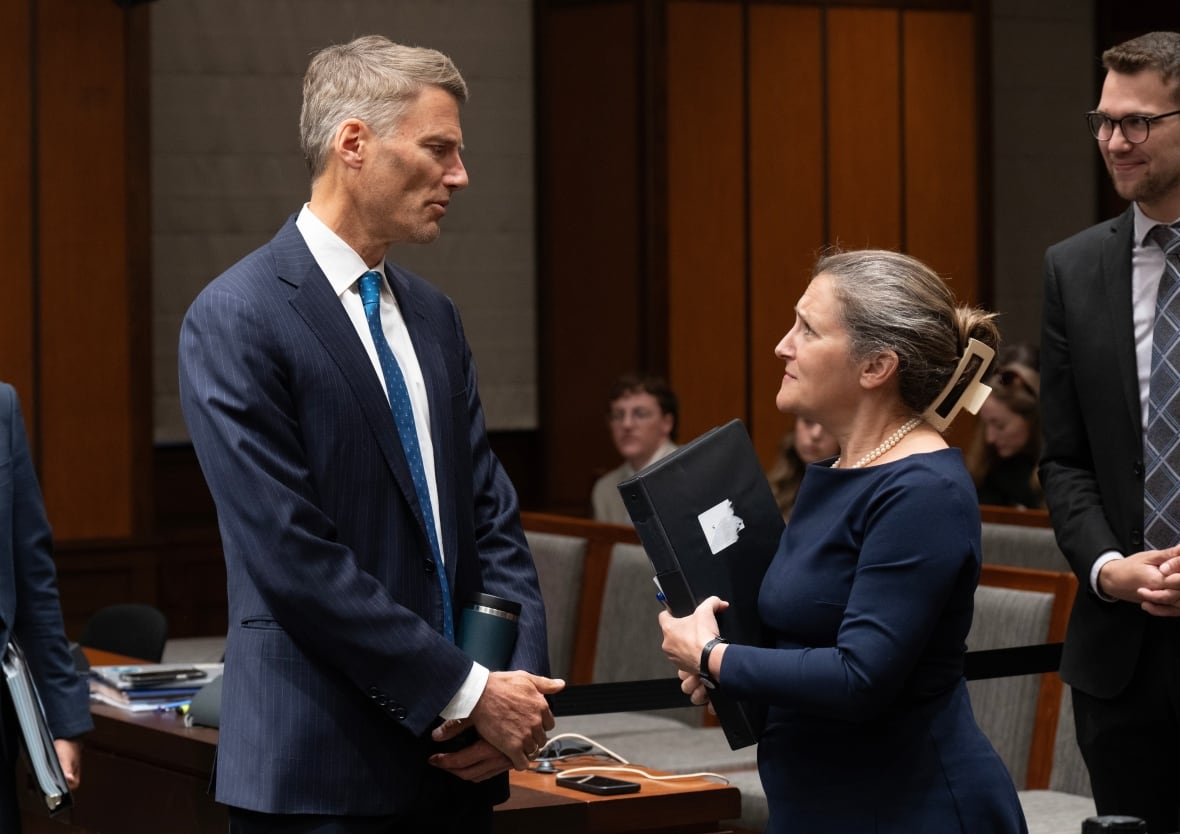
B.C. Ferries CEO Nicolas Jimenez told the committee that it received six compliant bids to replace its four oldest ships, all from foreign countries. While two Canadian shipyards pre-qualified for the competition, he said, neither chose to formally submit a proposal.
The organization chose the proposal that offered the best combination of value, quality, delivery, speed and protection for customers, Jimenez said.
“This was a choice between a foreign bid or no new ferries,” Jimenez said, adding that B.C. Ferries spoke with officials from the federal transportation department in April about the fact that the procurement was coming to a close.
Jimenez said that if the company had gone with another foreign proposal, it would have cost up to an extra $1.2 billion. Even if there had been a Canadian bid, he said, “it too would have cost more and those ships would have taken up to a decade longer.”
“British Columbians desperately need safe, affordable, reliable new ships to keep them and our economy moving. Our decisions have saved our customers and British Columbians from unaffordable, unnecessary fare increases,” he said.
Throughout the build, Jimenez said, B.C. Ferries will have a team of Canadian experts on site in China to ensure high standards of quality and security.
Ehren Cory, CEO of the Canada Infrastructure Bank, told MPs that the Crown corporation played no role in B.C. Ferries’ procurement decision. He said it’s not the bank’s role to tell project partners where they should buy their components.
Cory said that regardless of where B.C. Ferries gets its vessels, the benefits of the Canada Infrastructure Bank’s financing go directly to service users “by keeping fares more affordable and ensuring new, reliable, cleaner ships are in service as soon as possible.”
Jeff Groot, executive director of communications for B.C. Ferries, has said the company signed the loan with the bank before the contract with the Chinese shipyard was finalized.
Freeland sent her B.C. counterpart, Mike Farnworth, a letter in June saying she was disappointed that B.C. Ferries would choose a Chinese state-owned shipyard “in the current geopolitical context,” asking him to confirm that no federal funding would be diverted to purchase the ferries.
Before Friday’s meeting began, Bloc MP Xavier Barsalou-Duval said he’d like to see an apology from the government and from the Canada Infrastructure Bank.
He said it’s “unacceptable” and “problematic” that the government plans to invest in foreign infrastructure when Canada’s steel industry is facing tariffs from the United States.
The new vessels are expected to join the B.C. Ferries fleet between 2029 and 2031.



